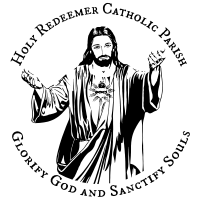The Eucharist, Part 7
Jesus Christ: Yesterday, Today, and Forever ~
Today we continue our twenty part series on the Eucharist. In case you missed the first three, you can find them here. This is in keeping with Archbishop Etienne’s pastoral letter on the Eucharist that you can find here (in case you missed it). Enjoy.
May God Bless You,
Fr. Thomas Nathe
Trent Horn, 20 Answers – The Eucharist. Catholic Answers Press. 2015
Get your own copy from Catholic.com
Question #7:
What are some common objections to the biblical evidence for the Eucharist?
Perhaps the most common objection to the biblical evidence for the Eucharist is the observation that Jesus routinely used self-referential metaphors that Catholics don’t take literally. For example, Protestant apologists Norman Geisler and Ralph MacKenzie note that Jesus said, “I am the door” (Jn. 10:7) and “I am the vine” (Jn 15:5), yet, in their words, “Roman Catholic scholars do not take these statements literally, even though they come from the same book that records “‘This is my body!’ It is therefore, not necessary to take Jesus literally when he said ‘this is my body’ or ‘eat my flesh.’”
The problem with Geisler and MacKenzie’s argument is that it can be taken too far. If any of Jesus’ commands are too demanding or strange they can simply be written off as metaphors since Christ used metaphors on some occasions. Of course, the question isn’t whether Christ spoke metaphorically. The question is did he speak metaphorically in this instance?
First, notice that Jesus does not continually refer to himself as a door or a vine in the same way that he continually and emphatically tells his audience that they must eat his flesh. Second, Christ does not tell us to “oil his true hinges” or “water his true roots” in John 10 and 15. This stands in contrast to his command that we eat his body as “true food” and drink his blood as “true drink.” Finally, no one rejected Christ for using metaphors involving the door or the vine, but when he declared that one must eat his flesh in order to have eternal life “many of his disciples drew back and no longer went about with him” (Jn 6:66). The fact that these followers abandoned Jesus shows that they did not misunderstand him; they took his claims literally and chose to reject them.
Another common objection comes from John 6:63. Geisler and MacKenzie say that this verse resolves the entire interpretation of the Bread of Life passage because here Jesus says, “It is the spirit that gives life, the flesh is of no avail; the words that I have spoken to you are spirit and life.” According to critics like them, this means that Jesus did not literally command us to eat his flesh, since the flesh “counts for nothing.” Instead, Jesus only wants us to believe the words he spoke, since his words ae “spirit and life.”
The problem with this objection is that what Jesus meant by “spirit” and “flesh” is different from what we mean by those terms today. For us, spirit and flesh tend to be synonyms for “immaterial” and “material.” But the New Testament frequently uses “spirit” to mean not what a thing is composed of (or a ghostly, spiritual substance), but what it is ordered toward, what is ultimate “end” is. The spirit is that which is ordered to the things that are “above” or that are in the spiritual world. The “flesh,” on the other hand, refers to that which is corruptible and ordered to the material world. Paul talks about spiritual people who judge all things but are judged by no one (1 Cor. 2:15) as well as men of the flesh (1 Cor. 3:1), but both these groups are composed of people with physical bodies.
Catholic apologist Karl Keating summarizes the futility involved in using John 6:63 to invalidate the Catholic understanding of the Eucharist. He writes:
[Did fundamentalists] think that Christ, who had just commanded his disciples to eat his flesh, now said their doing so would be pointless? Is that what “the flesh is of no avail” means? “Eat my flesh, but you’ll find it’s a waste of time” – is that how he was to be understood? And were the disciples to understand the line “the words I have been speaking to you are spirit, and life” as nothing but a circumlocution, and a fairly clumsy one at that, for ‘symbolic’?
Finally, notice that Jesus never said “my flesh” counts for nothing. He only says that the flesh – the corrupted material aspects of this world – counts for nothing. Rejecting the Eucharist because it looks like bread and wine – that is, making a material rather than a spiritual judgment – is what counts for nothing. Instead, Jesus’ words “eat my flesh and drink my blood” are spirit and life, and by heeding them we have eternal life.

